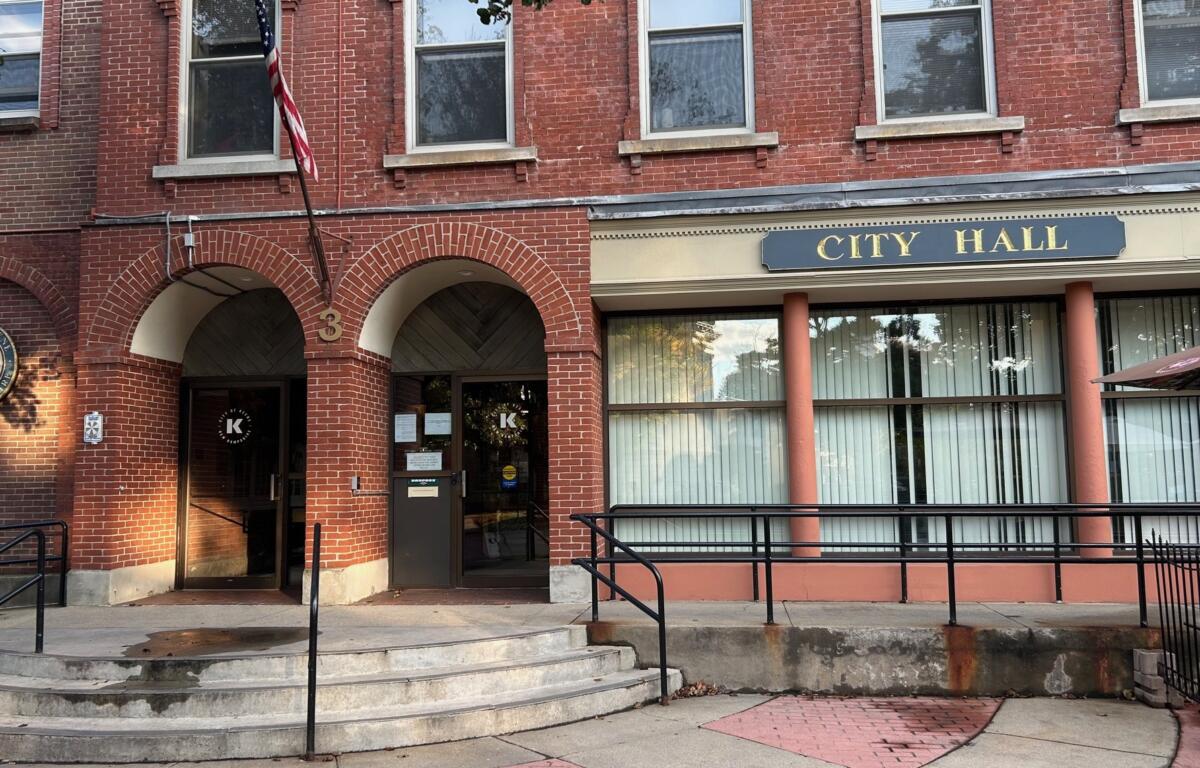KEENE, N.H. (MyKeeneNow) Keene City Manager Elizabeth Ferland appeared as a guest on Good Morning with Dan Mitchell Wednesday on WKBK Radio, where she discussed a range of city topics—from election turnout and downtown construction plans to housing, homelessness, and the future of 100 Church St.
Ferland began by noting that voter turnout of about 20 percent in Tuesday’s municipal election was typical for a local election year. She said she wasn’t surprised by the continued defeat of Keno, which voters have rejected three times, adding that “it’s pretty clear the voters of Keene do not wish to have Keno within their borders.”
On the question of social districts, which Keene voters also turned down, Ferland said it will be valuable to see how Concord’s pilot program unfolds, noting that future local discussions could benefit from another city’s example.
Ferland also offered significant updates on the long-awaited Main Street infrastructure project, which is still slated to begin construction in May 2026. She said the city anticipates going out to bid “as soon as next week,” following a delay tied to a required environmental review connected to state Clean Water Fund financing.
“Hopefully, we’ll be going out to bid next week,” Ferland said, explaining that the city expects a 30- to 45-day bid window and is “still on schedule to start in May.” The project will now be completed over two years instead of three, after City Council decided to reduce its scope and remove work planned for Gilbo Avenue.
Ferland confirmed that the City Council will vote tonight (Thursday) on a recommendation to award Greenman-Peterson, Inc. a contract for engineering services during construction. Stantec, she said, will continue working with the city through the bidding phase.
The Council will also decide tonight on whether to sell or keep the quarter-acre parcel of land the City owns at 100 Church St., located near the former Antioch University campus. It has been the subject of complaints about loitering, litter, and drug use, as well as a rallying point for neighbors who hope to reclaim it as a community green space. It was originally considered for sale to a nearby property owner earlier this year after reports of unsafe behavior, but that plan was met with community opposition.
She also discussed plans for a separate solar pavilion project on Gilbo Avenue, funded through a Northern Borders Timber Grant. The solar array will provide enough renewable power to offset the electricity needed for Main Street’s new infrastructure and lighting.
Turning to housing, Ferland said Keene is beginning to see the effects of local zoning updates, including more accessory dwelling units and applications for infill development. “We are definitely seeing a benefit of this,” she said, though she noted that promised state incentives tied to Keene’s “Housing Champion” designation have been limited so far.
On the issue of parking, Ferland said a recent analysis showed Keene currently has enough spaces, though not always in the most convenient locations. “The challenge is people want to park right in front of a business,” she said, pointing to the city’s ongoing outreach campaign encouraging residents to use downtown lots and walk.
Ferland acknowledged that parking remains a concern in neighborhoods near charter schools, where increased drop-offs have created congestion. City Council, she said, has already created several new “no parking” zones and continues to work with schools on better traffic flow.
When asked about homelessness, Ferland said Keene continues to shoulder significant costs as one of a handful of New Hampshire cities with shelters—spending more than $1 million annually to assist unhoused residents with temporary housing and related needs.
She attributed some of the local strain to the state’s system, under which New Hampshire’s 2-1-1 helpline directs people to any open shelter statewide, often sending individuals from other regions to Keene. “It’s frustrating,” Ferland said. “We need to work harder to revise the welfare system in the state of New Hampshire, because I believe it’s broken.”
Ferland said the city is also focusing on long-term solutions such as transitional housing and supportive services rather than relying solely on shelters. “We need affordable housing, we need transitional housing, and we need supportive services,” she said.
As colder weather sets in, Ferland said the city continues coordinating with local partners to prepare for the winter sheltering season, adding that while Keene has made progress in several areas, “there’s still a lot of work to do.”
Listen to the full interview:




